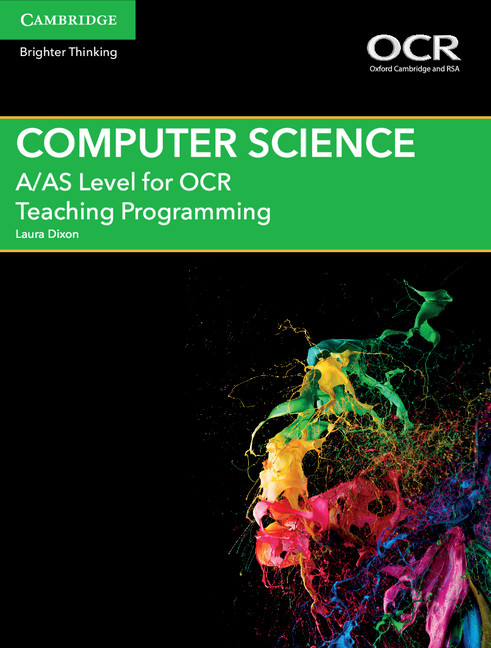Containing a structured series of detailed programming projects designed for various abilities, this classroom resource provides a lesson-by-lesson plan for teaching different programming techniques, using engaging and relevant scenarios. Including tasks, annotated sample answers in different programming languages, common errors and solutions, each programming project can be used across several lessons for programming practice and coursework preparation. This online resource will help teachers who are new to the subject or those returning after teaching ICT, with detailed guidance on teaching programming.
Features
- A series of detailed projects designed for use across several lessons.
- Projects include a task, lesson plans, annotated sample answers in different languages, common errors and solutions and context on how to apply the skills focused on to coursework.
- Accessibility Information: The accessibility information of this publication is unknown.
Table of Contents
- 1. Selection: What am I?
- 2. Iteration: Reaction tester
- 3. Selection and iteration: Fizz Buzz
- 4. Debugging
- 5. Procedures: Light show
- 6. Arrays: Snakes on a plane
- 7. Functions: Scrabble scores
- 8. Pseudocode: Denary to binary converter
- 9. Two-dimensional arrays: Noughts and crosses
- 10. Computational thinking: Crack the code
- 11. Efficiency: Guess golf
- 12. Stacks: Excavate the pyramid maze
- 13. Shortest path algorithm: Robot maze solver
- 14 Recursion: Merge sort
- 15. Decomposition: Hangman
- 16. Using APIs
- 17. Abstraction: Monster mash
- 18. Challenge 1: Train tickets
- 19. Challenge 2: Log in system - Programming for the Web
- 20. Challenge 3: Magic squares.
- Unknown accessibility: The accessibility information of this publication is unknown.
Advice on useful tools
Advice on useful tools, activities and timetabling from teachers experiencing school closures.
Cambridge GO
All our supporting resources have now moved to Cambridge GO – the new home for your Cambridge digital content.
Listen to our podcast
Listen to our podcast to discover teaching inspiration & advice from leading educational thinkers.




